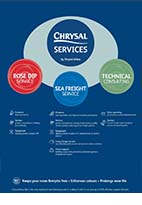Kenya has now reached a decade of successful biological control of spider mites using predatory mites to replace acaricides. Correct use of the predatory mite, Phytoseiulus persimilis, was able to replace chemical acaricides completely.
This resulted in immediate improvements to quality of the roses – which improved the profitability of the crop. Stem length increased, and bud size was larger if chemical pesticides were reduced. Not only growers recognise this as a fact now – but so do discerning customers. They are now checking for pesticide residues on roses and asking suppliers to implement IPM programmes that reduce pesticides in sustainable way.
The success of Phytoseiulus stimulated a paradigm shift in how growers viewed biological control for flower crops. In the beginning, it was not uncommon for Kenyan rose growers to proclaim that: “It is not possible for us to use biological controls in flower crops because we cannot afford any cosmetic damage”. It was widely believed that biological control was not powerful enough to eliminate sufficient spider mites to prevent continued feeding damage.
Fortunately for Kenya, there were a small number of innovative growers who recognised the potential benefits and took the risk of testing the Real IPM Phytoseiulus programme. Simon van der Burg’s new company, Timaflor on the foothills of Mt Kenya was one of these farms. Simon supported Sam Ngugi who was his Real IPM field consultant who guided the Timaflor team through the process.
The increased stem length and bud size that resulted from the reduction in pesticide use meant that the new Timaflor packhouse soon had to be extended because yields exceeded expectations at the planning stage. The rest is history. Timaflor is a globally recognised brand of exceptionally good quality roses.
Real IPM programme
The backbone of our IPM programme is a routine, prophylactic introduction of predatory mites and weekly applications of bio-pesticides – all year around. It does not rely on scouting data to trigger an application. There is neither risk to the environment from regular use of biocontrols nor any risk of resistance to the biological agent developing.
The programme is economically feasible to apply, irrespective of whether the ‘economic threshold’ has been exceeded. Real IPM produces all the biological agents in Kenya, making it very ‘affordable’. A prophylactic programme is essential, because of the speed at which small numbers of insect pests and disease spores can build up, if they are not prevented from establishing. Reliable supplies of freshly harvested predatory mites, produced in Kenya are part of the crop protection programme for spider mites and thrips.
Spider mite control Products
• Phytoseiulus persimilis
• Amblyseius califonicus or A. andersoni
• Achieve (Metarhizium 78)
Real IPM’s high impact Phytoseiulus persimilis Clean Up Programme for spider mite uses up to 2 million Phytoseiulus per hectare.
A weekly maintenance programme uses 25,000 Phytoseiulus per week with 25- 100,000 Amblyseius andersoni per week. If non-compatible pesticides are used for thrips or downy mildew – growers apply Achieve (Metarhizium 78) to suppress mites until it is safe to re-introduce Phytoseiulus and Amblyseius andersoni.
• Predatory mites kill spider mites on the underside of leaves where pesticides and silicon wetting agents cannot reach.
• Weekly high level introduction rates of predatory mites ensure more efficient searching for pests.
• Achieve sprays (Metarhizium 78) control pest mites without harming predatory mites.
• No scorching or stunting of plants,.
• Fewer pesticide residues on roses.
• Improved yield and quality
Kenya is now leading the world in its reduction of pesticide use in roses and carnations. Spider mite control was the first step in a longer journey. Timaflor has continued to develop its IPM programmes with Real IPM. Asante sana na safari njema! The writer is a director of Real IPM Ltd.


